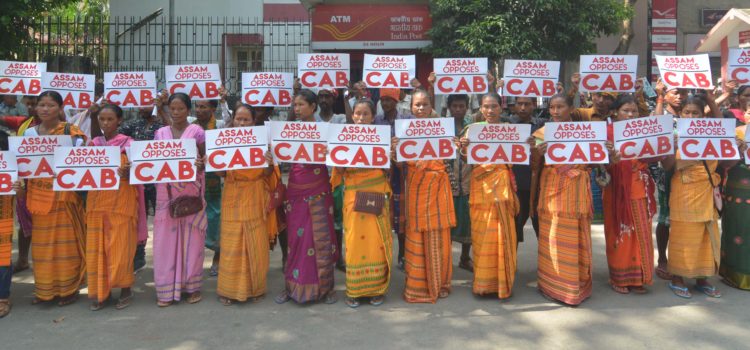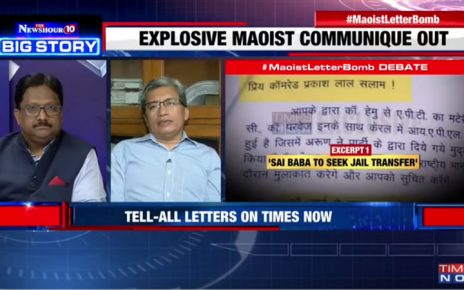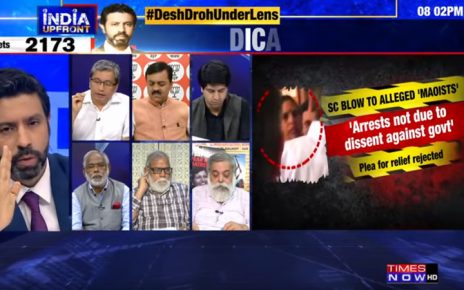Eastwind
By Suhas Chakma
The death of Dulal Paul, a “mentally unstable” man, in the custody of the government of Assam on 15 October 2019 exposed yet again the abuse of the law on the identification of foreigners to punish Indian citizens as alleged foreigners. Paul was lodged at the Tezpur detention centre since 11 October 2017 after having been declared a Bangladeshi by the Foreigners’ Tribunal in an ex-parte order. His family members who have all been declared as citizens of India by the National Register of Citizens (NRC) refused to accept the dead body unless he was declared a citizen of India. Any person who does not have any of the admissible documents prior to 24th March 1971, even if mentally sound but lacking adequate financial resources to exhaust the legal procedures, is condemned to suffer the fate of Paul.
Over 19 lakh people including one lakh Nepalis, about one lakh Scheduled Tribes of Assam, about 15,000 Bhojpuris, and thousands of Koch Rajbongshis and Tea Tribals have been excluded from the NRC in Assam published on 31 August 2019. The Government of India and the state government of Assam have little clarity on how to proceed or deal with the exclusion except asking people including Indian citizens to stand trial as alleged foreigners before the Foreigners Tribunals (FTs) with all the draconian consequences in the event of inability to satisfy the FTs, not to mention about economic ruin in the process, and building six detention centres to detain the alleged foreigners.
The BJP leaders stated that the original plan was to enact the Citizenship Amendment Bill (CAB) and then conduct the NRC by dividing people on the basis of religion with the aim to protect the Hindu migrants. The BJP is preparing to place the CAB in the ongoing winter session of parliament.
However, even if the Bill is passed, it is unlikely to address the suffering of the Indian citizens excluded from NRC, including Hindus. It will only end up manufacturing more conflicts. The reasons are as follows.
The CAB does not address the problem of those excluded from the NRC in Assam
The CAB seeks to provide citizenship by naturalisation to “persons belonging to minority communities, namely, Hindus, Sikhs, Buddhists, Jains, Parsis and Christians from Afghanistan, Bangladesh and Pakistan” by reducing the time period for submitting citizenship applications from 11 years to six years and further by not treating them as illegal immigrants. Obviously, Nepalis, Scheduled Tribes, Bhojpuris, Koch Rajbongshis and Tea Tribes of Assam cannot claim to have come from Afghanistan, Bangladesh and Pakistan but many of them do not possess any eligible document prior to 24th March 1971, the cut off date in Assam. Therefore, they cannot get the protection of the CAB.
On 6 October 2019, the Government of India amended the Foreigners (Tribunals) Order, 1964 to provide that where no appeal is filed by a resident of Assam against his or her exclusion from final National Register of Citizens (NRC), the District Magistrate shall be empowered to refer such cases to the Foreigners’ Tribunal for its opinion as to whether the person is a ‘foreigner’ within the meaning of the Foreigners Act, 1946. Therefore, the case of each of the 1.9 million persons excluded from the NRC including the Nepalis, Scheduled Tribes, Bhojpuris, Koch Ranbongshis, Tea Tribes etc shall be considered by the FTs.
If the law is to be applied equally, those who are without documents amongst the Nepalis, Scheduled Tribes, Bhojpuris, Koch Rajbongshis and Tea Tribes of Assam will neither be covered under the CAB as they cannot claim to have come from “Afghanistan, Bangladesh and Pakistan” nor any other law, and shall have to be sent to the detention centres with no prospect for early release or deportation to any country – a colossal man made humanitarian crisis unseen in modern history.
It is clear that neither the Government of India nor the Supreme Court can declare the Nepalis, Scheduled Tribes, Bhojpuris, Koch Ranbongshis, Tea Tribes etc excluded from the NRC as citizens without violating the right to equality. After all, Bengali speaking persons whether Hindu or Muslims have been living in Assam before the Citizenship Act or the Constitution of India came into force just like the Nepalis, Scheduled Tribes, Bhojpuris, Koch Ranbongshis, Tea Tribes etc.
The CAB also does not address the suffering of the Hindu minorities excluded from the NRC of Assam. A total of 3,30,27,661 members applied for inclusion in the NRC in Assam through 6,83,7660 applications accompanied by admissible documents claiming that they are citizens of India. An overwhelming number of those excluded i.e. those who claimed they are citizens by birth, are required to change their statement while submitting citizenship applications, if the CAB is passed, that they belong to “minority communities, namely, Hindus, Sikhs, Buddhists, Jains, Parsis and Christians from Afghanistan, Bangladesh and Pakistan”. In such a situation, there is no doubt that criminal offences of false statement, forgery etc can be invoked against any applicant who had claimed himself/herself a citizen of India by birth but seeks protection under the CAB as a foreigner.
Tweaked CAB to uphold the ILP can create more conflicts
There have been vociferous protests against the CAB in the North East as it effectively nullifies the NRC process. The North Eastern States have witnessed significant immigration in the post-Partition period. In order to placate the concerns of the North Eastern States, the government of India and the BJP have decided to take certain questionable measures.
During his visit to Mizoram on 5th October 2019, Union Home Minister Amit Shah promised to tweak the Citizenship Amendment Bill to provide that the CAB will not override the Bengal Eastern Frontier Regulation (BEFR) of 1873 under which even Indians are required to take Inner Line Permit (ILP) for entry into these States. The proposal to tweak the CAB with respect to the ILP has draconian consequences.
All non-natives without valid ILP can be expelled from the ILP States
The Bengal Eastern Frontier Regulation came into force in 1873 and it makes a distinction between natives and non-natives. The three States having the ILP at present i.e. Arunachal Pradesh, Mizoram and Nagaland were populated purely by “natives” at the time the BEFR came into force in 1873. As the BEFR requires taking of permission for entry, it implies that non-natives i.e. non-tribals have settled in the ILP States illegally.
The BEFR requires each and every visitor to the ILP-States to take ILP to visit and enter through any of the check gates or at the airports.
There are two types of ILPs i.e. (1) Temporary pass valid for 15 days which can be renewed once for another 15 days and (2) “Regular ILP” is valid for 6 months which can be renewed twice for another 6 months each. For six months’ ILP, sponsorship from a local resident or a Government Department is required. In any case, the passes are for temporary visitors.
This basically implies that all the non-tribals who cannot establish their descent from 1873 are illegal residents unless they have been settled by the Union of India such as the settlements in Arunachal Pradesh following Indo-China war. Those who have not been settled by the Union of India in the ILP States will face dire consequences under the CAB-NRC process. As per the 2011 census, Mizoram had non-tribal population of 61,091 while Nagaland had 2,67,529 and Arunachal Pradesh had 4,31,906 and a substantial number of them will be non-natives as per the BEFR.
Obviously, if the ILP States seek to enforce the ILP now, all of the non-natives can be expelled. However, when the nation-wide NRC process starts following the enactment of the CAB, it will mean that non-natives without documents prior to the cut off date shall be considered as ‘foreigners’.
The identification of natives and non-natives is an extremely sensitive issue in the North East. Minority tribes and at times, the sub-tribes of the dominant tribes, have been denied rights in the North East India.
Mizoram has been the worst case scenario. About 35,000 Brus had been living in the relief camps in Tripura since October 1997. Mizoram has refused to accept the Brus. In order to prevent their return, Mizoram has adopted stringent verification of origin documents. The CAB shall effectively imply that the Brus cannot return to Mizoram. Further, the Mizoram State Assembly passed innocuously titled “Mizoram Maintenance of Household Registers Bill” on 19 March 2019 to detect “citizens” and “non-citizens” by maintaining separate registers at the village level and further empowering non-governmental organizations to verify and countersign the registers/information as per Section 3(2) of the Bill. If the Bill is allowed by the Governor, non-Mizos shall be the victims at the hands of the communal non-State entities.
On 30 June 2019, Nagaland too decided to prepare the Register of Indigenous Inhabitants of Nagaland to list the indigenous people of the state by 10 December 2019. In 2017, Nagaland had withdrawn Scheduled Tribes status from the Rongmeis, one of the Naga sub-tribes, on the ground that they are not “indigenous” to Nagaland, for allegedly having come from Manipur. The status of the Rongmeis reflects the situation of other minority tribes in the State, not to mention about non-tribals.
Will Assam, Manipur, Meghalaya and Tripura be dumping ground from the ILP-States?
If the CAB is to be tweaked to allow the ILP to prevail over it, it effectively means that all the non-natives without any eligible document to prove Indian citizenship in the ILP states will be settled in the neighbouring States of Assam, Manipur, Meghalaya, and Tripura.
The futility of the ILP stands exposed from the fact that the ILP States had more population growth rate than the non ILP states except Tripura.
All the North Eastern States had significantly more population growth rate than the national growth rate from 1951 to 2011. If all the beneficiaries of the CAB i.e. alleged foreigners settled in the ILP States by 31 December 2014 are to be expelled and to be settled in Assam, Manipur, Meghalaya and Tripura, it will create a Pandora’s box of conflicts and ethnic cleansing.
Government manufacturing conflicts?
After the signing of the Assam Accord in 1985 and formation of the government by the Asom Gana Parishad, the Congress led Central government started training the Bodos in militancy to demand separate Bodoland. As Ved Marwah in his book, “Uncivil Wars: Pathology of Terrorism in India” wrote, “The Bodos were initially trained in handling arms and explosives by the SSB (Special Security Bureau)”. The establishment of Bodoland Territorial Council (BTC) in 2003 did not stop Bodo sub-nationalism – Bodoland witnessed riot after riot thereafter with the aim to create dominance of the Bodos in the BTC.
The BJP is repeating the same short-sightedness of the Congress on sub-nationalism. If the ILP is tweaked, a new set of conflicts will be created which will have more enduring effects than the armed conflicts.
If the BJP is serious, it ought to find courage to face the reality. Requiring people to produce documents prior to 24 March 1971 in case of the migrants (citizens by naturalisation) and their descendants and prior to 1951 with respect to those who claim to be descendants of citizens by birth shall end up excluding tens of millions of Indians if the NRC and CAB are undertaken nationally. Poor Indians, the common man and woman, who lack documents, regardless of their race, religion and community, will be worst affected.
The National Population Register being prepared should be the NRC at the current date and a refugee law should be enacted beforehand to protect the persecuted.
The writer is Director, Rights and Risks Analysis Group



